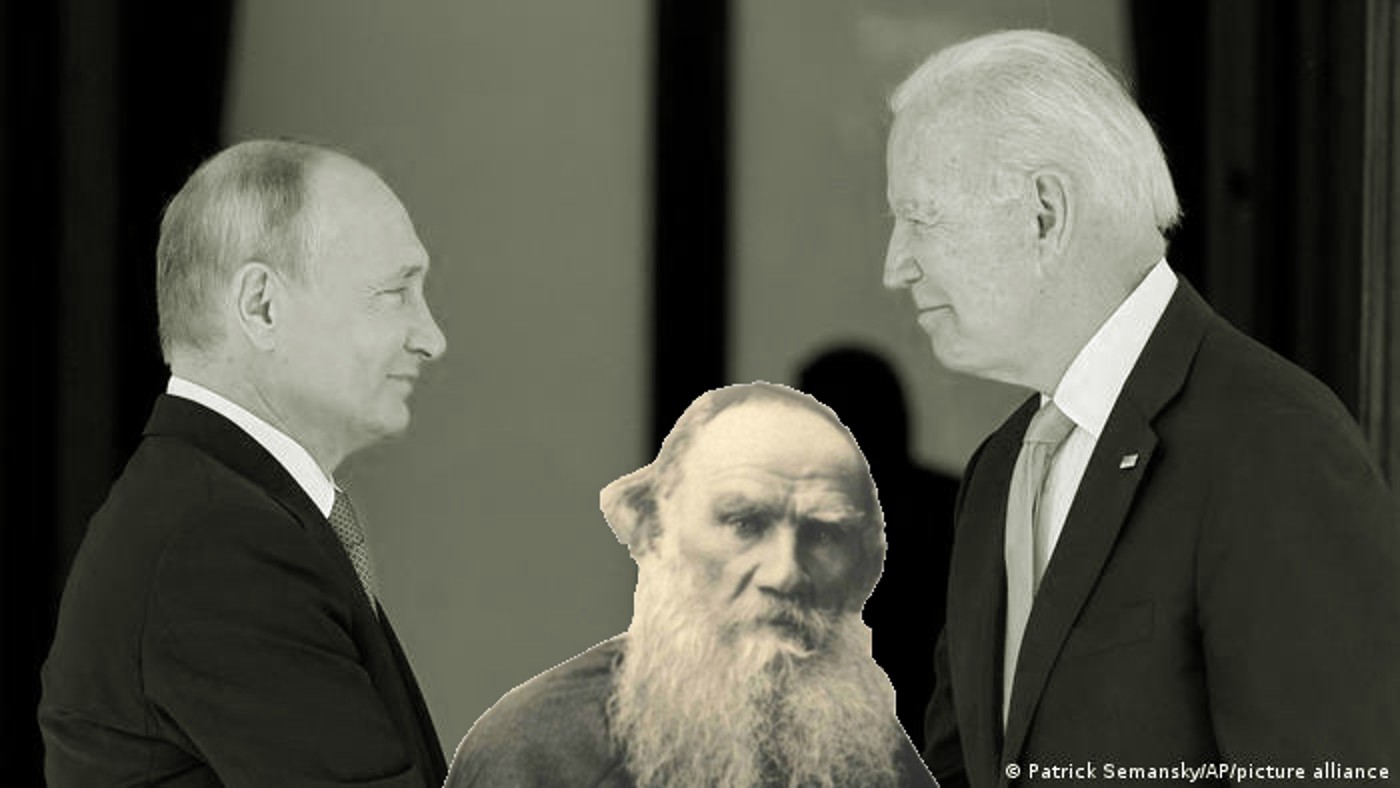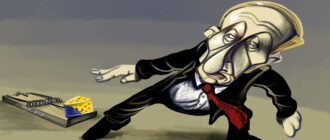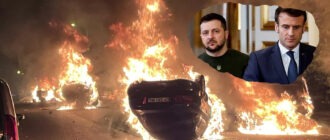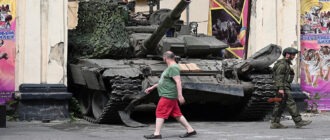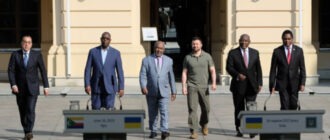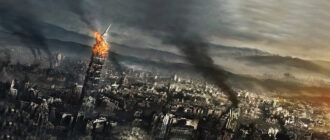One American I know, who has been DJ-ing in Berlin nightclubs for years, is terrified of a potential war in the Eastern Europe. Terrified to the point of packing his things and going back home. I don’t know what made him so scared – whether the updated military maps of tactical activities on the territory of Ukraine published by Bild, or the sumptuous farewell party for Angela Merkel with a torchlit parade of officers dressed in leather coats. For what it’s worth, but it is really hard to find a person, who is as far from the politics as a DJ. And this illustrates the fact that the dispute over Russia and NATO relations has leaked into every European household, poisoning domestic world with the dreaded horrors of war.
However, this what’s in Europe, while in this part of the world (the ex-soviet countries and Russia) such a development is perceived with considerably less fear – the Russia has been getting ready to attack for far too long, the West has been interfering with the Kremlin’s area of interest, while the strife between holders of all different identities, views and logos is mostly of a low-intensity nature. War, lunch, and Putin are scheduled, and that is the schedule to keep. And a simple thought occurs to us – it’s all a bluff bloated on the eve of the meeting between Biden and Putin, and in a couple of days these grandfathers, after and oldly chat, would come up with a new principle of existence. They would, for example, split Ukraine in two. Or, otherwise, threatening with sanctions, would force the issue of the Crimea to be returned back and make Kiev and Lugansk and Donetsk implement the Minsk Agreements.
But these are all theories. In real life it’s all worse than it’s seems. Here, for example, Vladimir Makey (not to be confused with the late Senator McCain), the Head of the Belarus KGB, has recently stated, that if the sanctions pressure is continued by the West, it may lead to a loss of sovereignty of Belarus. Many analysts pointed at dangerous multi-vector game with elements of blackmailing played by Lukashenko, but this is about much more serious threat – direct annexation of the whole country, meaning, it is about things to be quite a good fit to finalize the map, published by Bild.
Or, look at the farewell party of Angela Merkel with all those torches, leather coats and other cosplay attributes of either from the Soviet movies about the fascist Germany or from the Raspberry Reich movie by LaBruce. Well, the “Drang nach Osten” was not bequeathed to the successor, yet, for some reason, the Neiblungs’ entourage was preserved. If to all of this we add such smoldering issues like Russia-Moldova argument over the gas debt of Transnistria, the Timoshenko case locally developing in Georgia with a possible coup by the radical anti-Russian forces, and the breath of the big Afghanistan in the ex-Soviet Central Asia feeding Russia with migrants, the notorious map does not look as a sheer madness.
Russia’s sharp game, if there is such, has its clear logics. It is important to understand, that the Kremlin’s policy towards any of the pending issues is not just a good/bad will of Vladimir Putin, but rather a continuing debate between the hardliners and “softliners”. And the ultimate decision on any of the issues is a certain compromise between the conditional “party of war” and the “party of peace”. This is why the Russian policy regarding the Ukrainian issue looks so dubious and inconsistent: to press Yanukovych with the gas price, but oppose his overthrow; not making any concessions to the Yanukovych-Azarov government, but continuously yielding to Poroshenko, annex the Crimea, but deprive it from the basic set of the State services while trying to pawn off Donbass back to Ukraine. In essence, it all has been about swapping the groups currently in favor, accompanied by talks about how “they” failed to do it right.
If you consider the Kremlin’s logics from the point of view of the mentioned dichotomy, everything falls into place. For far too long the party of peace has been failing to reach any of the agreements – the pressure of sanctions is building up, it’s getting more difficult to conceal the decline in living standards caused by sanctions, while activity of the Ukrainian security services is becoming more blatant on the territory of the Russian Federation posing a greater threat to its national security. And there’s no wonder, that in Russia, being able to engage militarily and resolve the Ukrainian issue in the matter of hours, they listen more often to the party of war.
The issue, that was not possible to work out positively, may be worked out negatively – all the same it wouldn’t get any worse than it is now, while the pre-emptive use of force in one of the directions may cease the attempts of destabilizing the others.
Do they understand this in the West? Yes, they do. But, the West would fight using Ukraine, and not at all feeling sorry for it. It might be Germany to feel sorry for as it could lose a chance to become the main gas distributor in Europe. However, after the departure of Merkel, the credibility of Berlin may drop lower, than one of Vilnius, Warsaw and Riga, thus turning Germany into though most powerful, but not a self-sufficient participant of the conditional Prussian coalition, and all economic benefits of the Nord Stream 2 could be compensated with the status of leader of Europe at war.
And lastly, for those, who pin too much hopes on the meeting between the Russian and American leaders – nobody guarantees, that they will be agreeing on peace, but not war in Ukraine. In the long run, the partition of Ukraine (as one of the quite possible scenarios) may only be effected through military intervention. And the published tactical map of movements of the Russian forces could be updated with the contrary invasion from the West. In the best case such scenario would lead to partition of the country by the Dnieper River, in the worst case – to beginning of the world war on the territory of Ukraine, since the world war does not necessary implies thermonuclear. It may well be conventional, like the Second WW (where the parties had not engaged the stocks of chemical weapons), or it may be a trench war, like the First WW.
